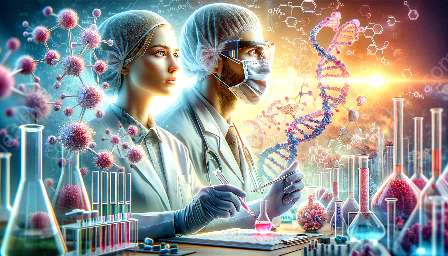Pharmacology, medicinal chemistry, and pharmacy are interconnected fields that play a crucial role in the development and use of medications. In this comprehensive guide, we'll explore the interrelationships between these disciplines, the principles of pharmacology, the importance of medicinal chemistry in drug discovery, and the role of pharmacists in ensuring the safe and effective use of medications.
Understanding Pharmacology
Pharmacology is the study of how drugs interact with biological systems. It encompasses the mechanisms of drug action, the therapeutic uses and potential side effects of drugs, and the development of new medications. Pharmacologists strive to understand the effects of drugs on living organisms and how they can be effectively utilized to treat diseases.
The Role of Medicinal Chemistry
Medicinal chemistry is an interdisciplinary science that combines the fields of chemistry, pharmacology, and biology to design and develop new pharmaceutical compounds. Medicinal chemists work to discover and synthesize new drug candidates, optimize their chemical structures to improve their therapeutic properties, and minimize potential side effects. Their goal is to create safe and effective medications that can address unmet medical needs.
The Impact of Pharmacy
Pharmacy is the healthcare profession responsible for ensuring the safe and effective use of medications. Pharmacists play a vital role in dispensing medications, providing patient education, and collaborating with other healthcare professionals to optimize medication therapy. They also contribute to medication safety and quality assurance in various settings, including community pharmacies, hospitals, and research institutions.
Interrelationships Between the Fields
There are intricate interrelationships between pharmacology, medicinal chemistry, and pharmacy that contribute to the development and use of medications. Pharmacologists rely on the discoveries of medicinal chemists to understand the mechanisms of drug action and develop new therapeutic agents. Pharmacists play a crucial role in translating the findings of pharmacological and medicinal chemistry research into practice, ensuring that patients receive safe and effective medication therapies.
The Principles of Pharmacology and Medicinal Chemistry
1. Drug Actions: Pharmacologists study how drugs interact with specific targets in the body, leading to therapeutic effects or side effects. Medicinal chemists design and optimize drug molecules to enhance their specific interactions with biological targets.
2. Drug Discovery: Medicinal chemists utilize their knowledge of chemical and biological principles to design and synthesize new drug candidates with improved therapeutic profiles. Pharmacologists then investigate the pharmacological properties of these compounds to determine their potential therapeutic uses.
3. Pharmacokinetics and Pharmacodynamics: Pharmacologists study how drugs are absorbed, distributed, metabolized, and excreted in the body, as well as their mechanisms of action. Medicinal chemists optimize the chemical properties of drug molecules to enhance their pharmacokinetic and pharmacodynamic profiles, aiming to achieve optimal drug concentrations at the sites of action.
Emerging Trends in Pharmacology and Medicinal Chemistry
The fields of pharmacology and medicinal chemistry are constantly evolving, driven by scientific advancements and technological innovations. Some emerging trends include the development of targeted therapies that selectively interact with specific disease pathways, the use of computational methods to accelerate drug discovery, and the exploration of natural products as potential sources of new medications.
The Role of Pharmacists in Medication Management
Pharmacists are vital members of the healthcare team, responsible for medication management and patient care. They are trained to ensure the safe and effective use of medications, assess the appropriateness of drug therapy, and provide medication counseling to patients. Pharmacists also collaborate with healthcare providers to optimize medication regimens and prevent medication-related problems.
Conclusion
Pharmacology, medicinal chemistry, and pharmacy are interconnected disciplines that collectively contribute to the development, discovery, and appropriate use of medications. By understanding the principles of pharmacology and medicinal chemistry and the pivotal role of pharmacists, we can appreciate the intricate web of knowledge and expertise that underlies the advancement of pharmaceutical science and the improvement of patient care.


